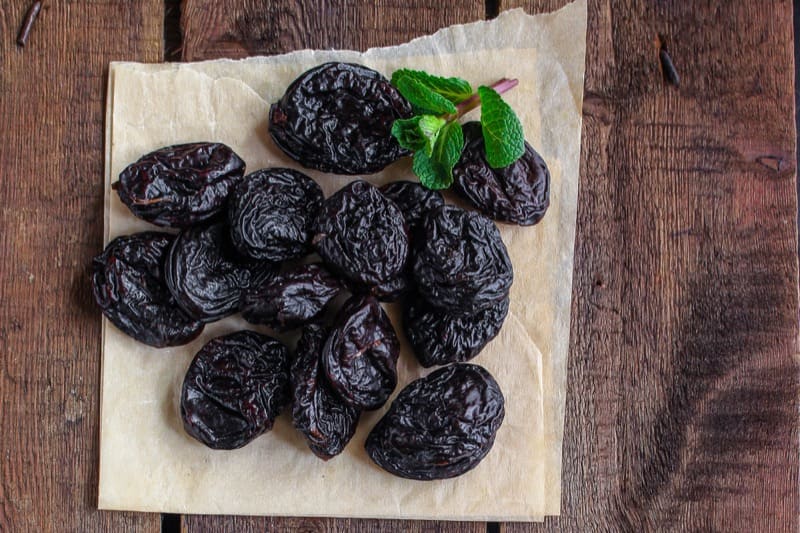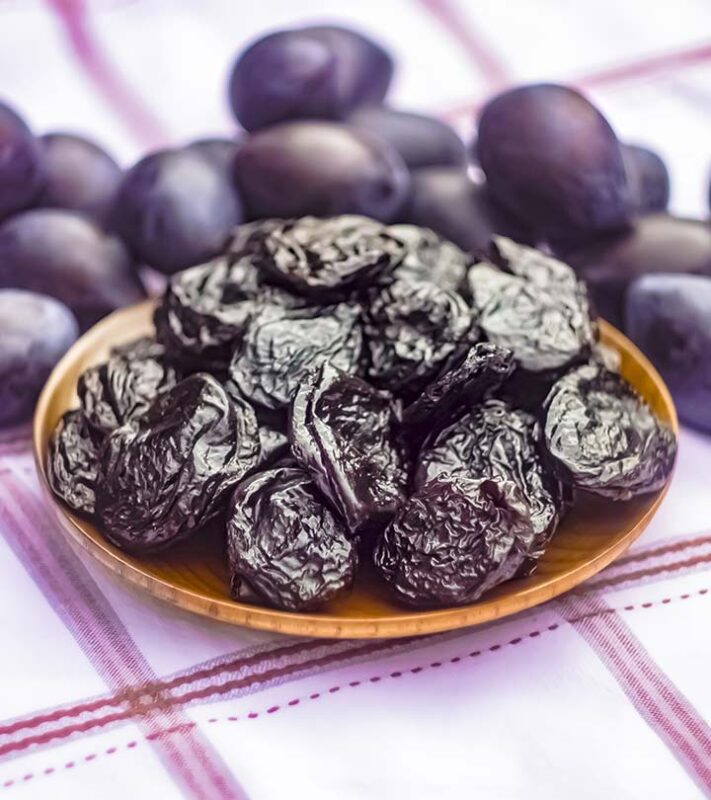Blog
Is it OK to eat 2 plums a day?

Plums are a popular fruit that has been enjoyed for centuries. They’re sweet, juicy and flavorful, and they come in many different colors and varieties. Plums are an important part of the tree’s ecosystem and can be used to make jams, jellies, juices or wine. You can even freeze them for later so you don’t have to worry about wasting any precious fruit!
Plums, with their vibrant colors and sweet-tart taste, are not only delicious but also packed with essential nutrients. But is it okay to eat two plums a day? In this article, we will explore the health benefits of plums and consider the factors to keep in mind when incorporating them into your daily diet.
The Nutritional Power of Plums
Plums are a rich source of vitamins, minerals, and antioxidants. They are particularly high in vitamin C, vitamin K, potassium, and dietary fiber. These nutrients play vital roles in supporting overall health, including immunity, bone health, and digestion.
Benefits of Eating Plums
- Rich in Antioxidants: Plums contain antioxidants, such as quercetin and anthocyanins, which help combat oxidative stress in the body, reducing the risk of chronic diseases.
- Digestive Health: Plums are high in dietary fiber, promoting healthy digestion and preventing constipation. Regular consumption can aid in maintaining a healthy digestive system.
- Bone Health: Plums are a good source of vitamin K, which is essential for bone health. Adequate vitamin K intake contributes to better bone density and reduced risk of fractures.
- Immune Support: The high vitamin C content in plums strengthens the immune system, helping the body fight off infections and illnesses.
- Heart Health: Potassium in plums helps regulate blood pressure, promoting cardiovascular health. Potassium-rich diets are associated with a lower risk of stroke and heart disease.
Considerations When Eating Plums
- Moderation is Key: While plums offer numerous health benefits, consuming them in moderation is crucial. Eating two plums a day is generally considered safe for most people. However, excessive consumption may lead to digestive discomfort due to their fiber content.
- Watch Sugar Intake: Plums contain natural sugars. While these sugars are natural and come with fiber, individuals with diabetes should be mindful of their overall carbohydrate intake, including fruits like plums.
- Allergies: Some individuals may have allergies to certain fruits, including plums. If you experience itching, swelling, or difficulty breathing after consuming plums, consult a healthcare professional.
- Pesticides: If you are concerned about pesticide residues, consider choosing organic plums or washing them thoroughly under running water before consumption.
Incorporating two plums a day into your diet can offer a range of health benefits, from boosting your immune system to supporting digestive and bone health. However, like any food, plums should be consumed in moderation and as part of a balanced diet. If you have specific health concerns or dietary restrictions, it’s always a good idea to consult with a healthcare provider or a nutritionist to determine the best approach to include plums in your daily routine. With their delicious taste and nutritional richness, plums can be a delightful addition to your overall healthy eating plan.
Why fruit is good for you
Plums are a good source of vitamins and minerals, including vitamin A, C and E. They are also high in fibre and low in sugar.
Plums contain antioxidants that may help to prevent illness such as heart disease or cancer by helping to remove harmful substances from your body.
The nutrients found in plums can also help you maintain a healthy weight as they are low in calories; a medium-sized plum contains only 40 calories!
Vitamins and minerals in plums
Plums are a delicious, versatile fruit that can be eaten fresh or used as an ingredient in recipes. Plums come in a variety of colors and flavors, but all plums contain a similar nutritional profile.
Plum Nutrition Facts
One medium-sized plum contains only 70 calories and provides more than 10% of your daily recommended value (DV) for vitamin C and potassium, plus 4% DV each for magnesium and iron. It also contains small amounts of other essential nutrients such as vitamin A (1%), calcium (0%), thiamin (B1), riboflavin (B2), niacin & pyridoxine/vit B6; folic acid; pantothenic acid & biotin
How many plums should you eat a day?
You can eat two plums a day to get all the benefits of the fruit. This is a good guideline, but it’s not an exact amount. You should also consider other factors that may affect how much you should eat, such as your age and weight.
Plums are healthy snacks because they offer fiber, potassium and Vitamin C — all nutrients that help lower blood pressure and reduce inflammation in the body. Plums are low in calories (about 60 per plum) and contain no fat or cholesterol so they’re an easy way to add some flavor without adding too many calories or fat grams to your diet!
Is it OK to eat 2 plums a day?
Yes, it is fine to eat two plums a day. Plums are a good source of vitamin C, potassium and fiber. They are also a good source of antioxidants that may help protect against some types of cancer.
Plums can help lower blood pressure, reduce the risk of heart disease and lower cholesterol levels in your body.
You can enjoy the health benefits of plum trees, including eating 2 plums a day.
Plums are a good source of vitamins and minerals. They’re low in calories, contain fiber and antioxidants that can help prevent cancer, lower blood pressure and more.
Plums are also high in potassium which can help reduce the risk of heart disease by lowering blood pressure. In addition to being a good source of vitamin K (which is important for bone health), plums contain other nutrients that support healthy bones such as magnesium and copper.
If you want to eat 2 plums a day, go ahead! They’re a delicious and healthy way to get your daily dose of vitamin C. Just make sure they’re not from California because they may have been sprayed with chemicals that are harmful to humans and animals alike.
Here’s a list of 10 frequently asked questions about how many plums is too many, along with answers:
1. How many plums can I eat in a day?
While there’s no specific limit, it’s generally recommended to consume no more than 10 plums per day. Eating more than this may lead to digestive issues or an excess intake of sugar.
2. Can eating too many plums cause health problems?
Yes, consuming excessive amounts of plums can potentially cause gastrointestinal discomfort, such as bloating, diarrhea, or stomach cramps. It’s important to listen to your body and consume plums in moderation.
3. What is the recommended serving size for plums?
The recommended serving size for plums is approximately 2 to 3 fruits, depending on their size. This ensures a healthy balance of nutrients without overloading your system.
4. Are there any benefits to eating plums in moderation?
Absolutely! Plums are packed with vitamins, minerals, and dietary fiber. When consumed in moderation, they can help improve digestion, support healthy skin, and provide a natural source of antioxidants.
5. Can eating too many plums lead to weight gain?
Eating too many plums could contribute to weight gain due to their naturally high sugar content. Be mindful of your overall calorie intake and ensure plums are part of a balanced diet.
6. How many plums can I eat if I have diabetes?
If you have diabetes, it’s best to consult with a healthcare professional about an appropriate intake of plums. Since they contain natural sugars, regulating portion sizes and monitoring blood sugar levels is crucial.
7. Can eating too many plums affect my digestion?
Yes, overconsumption of plums may disrupt digestion, leading to symptoms like diarrhea or stomach upset. It’s important to enjoy plums in moderation and pay attention to how your body reacts.
8. Can I eat plums every day?
Yes, you can eat plums every day as part of a balanced diet. Just remember to keep the portion sizes in check and listen to your body’s response.
9. Are there any risks associated with eating too many plums?
Besides digestive discomfort and potential weight gain, eating excessive amounts of plums may also lead to high sugar intake, which can contribute to health issues like insulin resistance.
10. Can I rely on plums alone for all my nutritional needs?
While plums offer many health benefits, they shouldn’t be relied upon as the sole source of nutrition. It’s essential to eat a varied diet that includes a range of fruits, vegetables, whole grains, and proteins to meet all your nutritional requirements.
Remember, these guidelines are general and may vary depending on individual health conditions. It’s always best to consult with a healthcare professional for personalized advice.




